LATEST NEWS


No one ever said housemaid or domestic. Pride matters more
And here’s the truth of it: she was Tantie, a grand-mothering
substitute chained to Miss B., a former Hollywood come-hither
and Tantie’s final mystery. I couldn’t name a single movie
Miss B had starred in but Mother told us she was a 1st-class bitch.
Thirty years later, watching late night television, I recalled:
I met that bitch once. Ill-preserved on celluloid, she fluttered
there amidst her ersatz brood but not in the same way I’d seen
her flutter decrees upon my Tantie. And my Tantie, once a muck-
a-muck in her own right (having flown an airplane solo in days when
most women and Negroes were grounded) half-fluttered in return—
to make sure her family had dimes and nickels. Tantie didn’t tell us
she was Miss B’s maid and I never knew a thing about it until I saw
this black-and-white movie with Miss B—half a star among stars—
given third place billing—nearly unrecognizable as the cold shrew
I remembered flaunting dipped pearls,
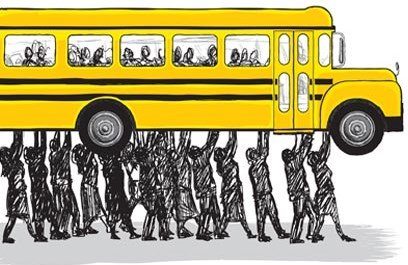
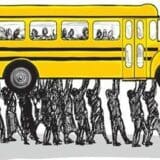
I wanted to cry after watching Go Public: A Day in the Life of an American School District. After the hour-plus video collage of complex and inspiring day-to-day interactions that make up our nation’s public schools, the film culminates in pleas from teachers, parents and maintenance staff to the Pasadena Board of Education to forestall millions of dollars in new budget cuts to the district’s schools.
I’ve been there myself, 25 years ago when my kids were in grammar school, pleading with Santa Monica School Board members to save school librarians and nurses, most of whose positions were eventually eliminated.
It’s so hard to understand how a city like Pasadena, where median home prices are in the $600,000 range, has had to face $6.5 million in education cuts in the past few years. These cuts have resulted in school counselors having to handle 480 students apiece,
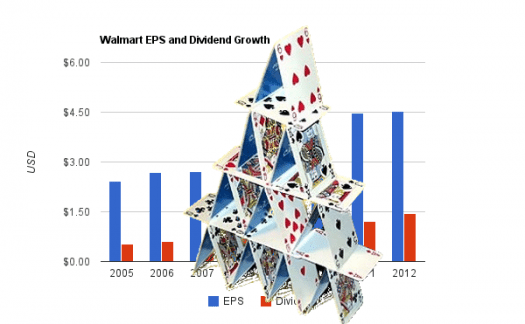

This Walmart low-prices, low-wages thing isn’t working out so well — even for Walmart.
The company released its quarterly numbers last week, and they weren’t pretty. Same-store sales declined by 0.3 percent, and the company lowered its earnings-per-share forecast. Bad news wasn’t limited to Walmart. At the low end of the retail consumer market, Kohl’s reported similarly bad news; Macy’s, a little higher up the food chain, lowered its earnings forecast as well.
While Americans with money are boosting both the housing and auto markets, the growing number of Americans without are curtailing their shopping. As Douglas McMillon, chief executive of Walmart International, noted last week, “When we do see good things in the economy, sometimes they don’t immediately flow through to a paycheck. Remember how the average American lives.”
And who signs more paychecks than any private-sector employer on the planet?


You wouldn’t know it from the Los Angeles Times’ recent coverage, but the labor contract with International Brotherhood of Electrical Workers (IBEW) Local 18 currently under consideration by city officials is a good deal for Department of Water and Power (DWP) customers and the city as a whole, and city officials would be wise to approve it, even if there are minor changes made to the deal. A regular reader might also miss the fact that Los Angeles has some of the lowest utility rates and most reliable service in the region.
A cursory review of the L.A. Times website reveals that the newspaper has published some 18 stories on issues related to labor costs at DWP over the last year. (This accounting does not include the Times’ coverage of the mayoral campaign in which IBEW Local 18’s support of Wendy Greuel became an issue.) Meanwhile,
» Read more about: The L.A.Times Misses the Bigger Picture »


The Citizens Trade Campaign is coordinating efforts with labor, environmental organizations, health organizations and others to help persuade Congressional representatives of the need to opposed fast track authority for the Trans Pacific Partnership (TPP) agreement, which would cover 40 percent of the global economy between 12 nations, and is currently being negotiated in virtual secrecy.
Since negotiations began in 2008, none of the negotiating documents have been officially released for public review. However, approximately 600 corporate lobbyists have been named as official advisors which entitle them to access to both the negotiating texts and the negotiators.
And now the Administration wants to invoke a Nixon-era procedural tactic known as “Fast Track” that allows for only an up or down vote on the agreement. “Fast Track” allows the Trans Pacific Partnership and other trade agreements to be signed before the public sees any proposed texts and then rushed through Congress,
» Read more about: Will Congress Fast-Track a “NAFTA on Steroids?” »


Rooftop solar has many benefits, like reducing the need for dirty natural gas plants that pollute our air. It is also a great tool for growing California’s clean energy economy. In fact, not only does it save individuals money on their utility bills, but it also creates much-needed jobs.
The solar industry has created approximately 43,000 jobs in California alone. That’s more jobs than Southern California Edison, Pacific Gas & Electric, and San Diego Gas and Electric combined. When families decide to go solar and install solar panels on their roofs, they contribute to this incredible job growth. This means that solar families are also solar job creators.
The jobs are not the only way rooftop solar helps the economy. Solar saves consumers money. According to the Vote Solar Initiative, schools and other public agencies have saved $2.5 billion installing rooftop solar. The money saved by schools provides huge budget relief to cash-strapped schools and can be used to purchase new books,


Maria Guevara had been trying to get pregnant for three years when she saw a doctor at Los Angeles County General hospital in 2008. She was understandably thrilled, then, to learn she was indeed three months pregnant at the time of her visit. As Guevara later recalled, when the doctor asked her in English if she wanted to keep the baby, “without hesitation I replied ‘yes’ to his question. Before leaving the hospital, the doctor prescribed me medication that I thought was prenatal care. That lack of communication between the doctor and me has changed my life forever.”
Guevara took the prescribed medication, and experienced violent pain and bleeding. She returned to the hospital, where another doctor told her the bleeding was the result of a miscarriage.
“My baby was dead. The medication the initial doctor prescribed to me was not prenatal care but medication to induce an abortion,” she told a press conference in April at the University of California Davis Medical Center in Sacramento.
» Read more about: Interpreter Bill Would Help Save Lives Lost in Translation »


Why is the nation more bitterly divided today than it’s been in 80 years? Why is there more anger, vituperation and political polarization now than even during Joe McCarthy’s anti-communist witch hunts of the 1950s, the tempestuous struggle for civil rights in the 1960s, the divisive Vietnam war or the Watergate scandal?
If anything, you’d think this would be an era of relative calm. The Soviet Union has disappeared and the Cold War is over. The civil rights struggle continues, but at least we now have a black middle class and even a black President. While the wars in Iraq and Afghanistan have been controversial, the all-volunteer army means young Americans aren’t being dragged off to war against their will. And although politicians continue to generate scandals, the transgressions don’t threaten the integrity of our government as did Watergate.
And yet, by almost every measure, Americans are angrier today.


As Labor Day approaches, here’s a question that many opponents of immigration reform don’t want to answer honestly: Can you be for the middle class and against comprehensive immigration reform? The answer is no — a fact that creates all kinds of problems for those lobbying to stop legislation that would create a path to citizenship for millions of undocumented immigrants.
Foes of immigration reform like to position themselves as true-blue patriots acting in the best interests of the country. But it’s hard to square that image with opposition to legislation that, more than any other single act, could help rebuild the nation’s middle class.
It’s obvious to most people that immigration reform would improve economic conditions for undocumented immigrants. After all, while most immigrants come here in search of a better life, their legal status often relegates them to low-wage jobs with few if any benefits and unsafe workplace conditions.
» Read more about: Immigration Reform Debate: Facts v. Bad-Faith Arguments »


It’s summer and gasoline prices have peaked — a certain sign that it’s vacation time. Except for those who don’t get vacations or, worse, get them but don’t take them.
Since about a quarter of this country’s workforce earns only minimum wage or holds down a job (or two) at less than full-time hours, a large number of families do not benefit from paid vacations at all. Add in the number of self-employed who only take a vacation if they can earn enough to set aside the money, and vacations, which much of the middle class has always taken for granted, have suddenly become out of reach for a large number of families. If they take any time off, it costs them money they need to survive.
More than three-quarters of Americans say they live paycheck to paycheck, which means taking a vacation even for the middle class means going into debt.


Readers who have fought for social justice while waging a home-front war with parents who hold views diametrically opposed to theirs will take heart in Madeline Janis’ op-ed in Sunday’s Los Angeles Times.
The opinion piece, “Dad, Rush Limbaugh and Me,” is a wry meditation on family and political beliefs that was prompted by the recent death of the author’s father. However, the story specifically springs from an incident that occurred when Janis, who is the Los Angeles Alliance for a New Economy’s national policy director, helped move her father to an assisted living facility several months ago. She writes:
On the day we were packing, with both of us understandably on edge, I came across a stash of Rush Limbaugh caps, maybe half a dozen of them, each with a different year printed on the front. I couldn’t let it pass.
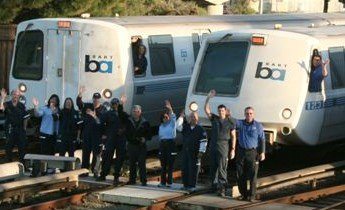

I’ve seen some pretty outrageous anti-worker opinion pieces written about the contract negotiations at Bay Area Rapid Transit (BART) over the last two months. But nothing I’ve read is as infuriating as a San Francisco Chronicle op-ed from Chuck and Barbara McFadden.
In short, the McFaddens assert that workers like those at BART are not deserving of the middle-class wage their unions negotiate. To make their point, they use an argument that’s all too common today — private sector workers are suffering so public sector workers should too. What’s so absurd about this logic is that the very reason so many private sector workers are struggling is because most don’t have the ability to bargain with their employer for a decent wage in return for a hard day’s work.
Workers should be able to negotiate with their employers over wages and benefits like health care and retirement security.
» Read more about: Scapegoating of BART Employees Continues »
OMG! Was Gene Autry, the “singing cowboy” on TV and in the movies, really a radical?
I just discovered this Autry recording of the pro-labor song “The Death of Mother Jones,” about the great radical union organizer — Mary Harris Jones, sometimes called the “most dangerous woman in America” by her enemies — who died at 100 in 1930. Autry recorded the song in February 1931 during the Great Depression. It is so obviously pro-union that there’s no way Autry couldn’t have known what it meant.
Like many baby-boomers, I grew up watching Autry in his cowboy films and his popular television show. He was famous for singing cowboy songs like “Back in the Saddle” and “Tumbling Tumbleweeds,” as well as popular hits like “Rudolph the Red-Nosed Reindeer,” “Here Comes Peter Cottontail,” and “Frosty the Snowman.”
In the 1930s, 1940s and 1950s, he was one of Hollywood’s biggest stars.
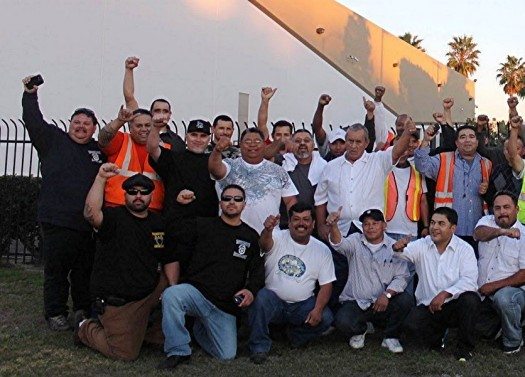
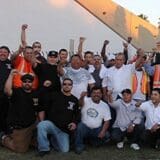
Los Angeles Port Drivers and workers across America all have one thing in common: We are working harder than ever but struggling just to get by.
Our economy is stalled out. Households in the middle have seen their income slashed relative to today’s cost of living, and the new jobs being created don’t pay enough for people to make ends meet. That’s why workers at the ports of Los Angeles and Long Beach, and across America, are joining together to demand a fair wage and the right to form a union without retaliation.
Los Angeles’ port drivers are fighting for a wage that will allow them to cover their basic needs and help get our economy moving again. For port drivers working at Green Fleet Systems in Carson, California, their effort to form a union has been met with fierce resistance and illegal retaliation.* Drivers have had enough and are stepping up their fight for justice,
» Read more about: Port Drivers Send Message to Green Fleet Systems »


Writing on the building outside the Palmer House Hotel in downtown Chicago says “igniting passions since 1871.” The American Legislative Exchange Council (ALEC) held its 40th anniversary conference at the hotel, igniting the passions of protesters who came out to inveigh against ALEC’s agenda during a demonstration August 8.
Birthed in Chicago, ALEC first met in September 1973. As a 501(c)(3) nonprofit it has tax-exempt status. ALEC “also develops model bills and resolutions on economic issues,” as the organization’s website states, noting that those bills “can be helpful resources” for legislators pursuing privatization of public services.
To kick off the conference, ALEC arranged to have British Parliament member Conor Burns speak at a leadership dinner August 6 before major meeting events the following three days. An ALEC meeting program notes Burns’ relationship with the late Margaret Thatcher, renowned for gutting public projects. He reportedly “visited Lady Thatcher at her home every Sunday evening for drinks [and] developed a close bond.”


There’s nothing quite like being targeted by Tea Party members to show that you’re on to something good. This realization came to Jason López Urena during a State Assembly hearing yesterday on legislation that would spur affordable housing and support the creation of good jobs.
“It felt good to be attacked by the Tea Party – people are against it but they don’t know why,” said López of the legislation. “They said we are communists because we want to give back to the people.”
López, a 19-year-old college student and community activist who sits on the board of the nonprofit Women in Non-Traditional Employment Roles, was part of a small delegation that traveled to Sacramento to advocate for SB1 (Steinberg), a bill that would create a Sustainable Communities Investment Authority in areas near transit hubs. Their efforts were rewarded when the Assembly’s Local Government Committee approved the bill with a 6-3 vote,
» Read more about: Capitol Steps: CA Moves One Step Closer to Funding Affordable Housing »


The baby was lifted in its flowing shroud
And carried through the red-lit streets,
Floating above the raised fists of men
In headcloths. The wrapped body a cloud,
Pall burden so light, it seemed weightless
Crowning the mad cortege. That shape
Once living in her arms—that shape
I mirrored, newborn at my breast. Shroud
So light it became an unsupportable weight,
As TIME fell open before me. I was the street
Going up in flames, but couldn’t see it, in the cloud
Of fire, her face. What dark veil or wall of men
Hid her? TIME opened to the images of men.
I couldn’t see her; just her grief, unraveling shape,
White streaming from the breast. That cloud
Of chants, bitter witness to the small shroud
Held high. She stood away from the fiery street—
The monument of her shadow,
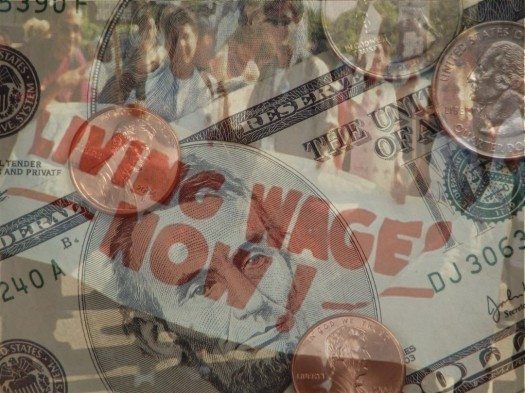
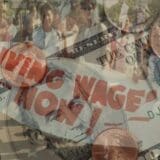
Through the years, the centerpiece of living wage campaigns has generally been a focus on fairness and economic justice for workers. And rightly so. Successful living wage campaigns have resulted in critical gains for workers and their families, bringing everything from increased economic security to improved access to quality health care. These material gains have meant a world of difference for real people and have helped lift thousands out of poverty to achieve a decent standard of living – something we all deserve, regardless of the work we do.
But a living wage is not just about improving the quality of life for individual workers — it can also be a powerful mechanism for stimulating local economies, boosting local businesses and confronting the growing problem of poverty in our communities.
A new report released this week by the Los Angeles Alliance for a New Economy (LAANE) approaches the idea of a living wage from this perspective and examines how improved wages and benefits for thousands of L.A.’s hotel workers have the potential to help bring economic renewal to our neighborhoods and our city as a whole.
» Read more about: Living Wages: Good for Business, Good for L.A. »
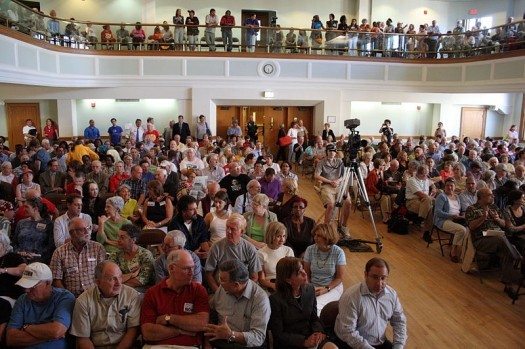

The future of immigration reform could well to be decided in the next three weeks. And this will occur not in the halls of Congress but in Congressional Town Hall meetings across the nation. Anti-immigrant activists are hoping for a replay of the Tea Party’s successful August 2009 attacks on health care reform; by triggering loud public confrontations with Congressmembers in normally placid Town Hall meetings, conservative activists led the media to wrongly conclude that reform lacked public support. But in 2013, progressives are prepared. Immigrant rights activists believe they can use the Town Halls to expose the strength of their support and propel immigration reform to passage. Considering that both sides are prepared and the key element of surprise is lacking, whose activist strategies will prevail?
As even President Obama acknowledges, the passage of immigration reform comes down to whether Speaker John Boehner will allow a House vote. A majority of House members would support the Senate bill if given the chance,
» Read more about: Path to Citizenship Passes Through Town Hall Meetings »


The issues of immigration and workers’ rights are inextricably linked, as seen in the participation of 30 L.A. labor unions in today’s Citizenship Caravan to Bakersfield. The unions are joining organizations from all over California to call for immigration reform with a path to citizenship.
A less widely known example of this link is an obscure immigration program that is being used by irresponsible companies in ways probably not envisioned by the government. One of those companies is located here in Southern California and is locked in a labor dispute with its employees.
The EB-5 investor program connects wealthy immigrants with U.S. businesses seeking capital. Run by the U.S. Citizenship and Immigration Services agency (USCIS), its stated purpose is to “stimulate the U.S. economy through job creation and capital investment by foreign investors.”
In exchange for a million-dollar investment (only half a million if the business is located in a high-unemployment area) USCIS grants the investor a green card if they can prove that their investment created at least 10 jobs.